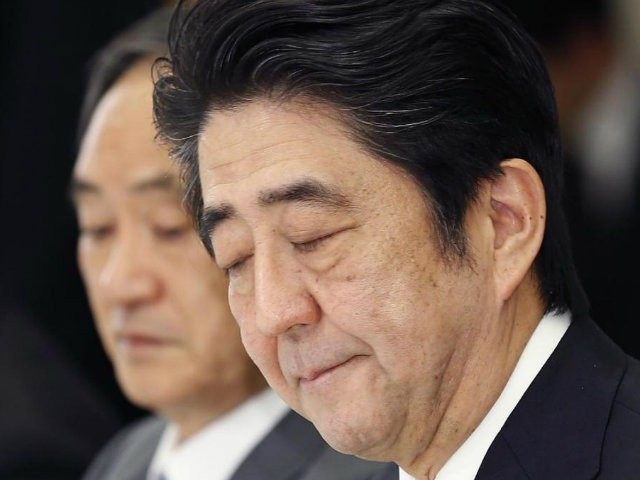TOKYO (AP) — Diplomatically speaking, they may be the most important words Japanese Prime Minister Shinzo Abe utters this year.
So much so that he convened a panel of experts this week to advise him on what to say to mark the 70th anniversary of the end of World War II on Aug. 15.
A tug-of-war has emerged between those who want Abe to stick to the apologies made by past prime ministers for Japan’s wartime aggression and colonial rule, and those who say such accounts are exaggerated or even fabricated.
Abe, known for harboring revisionist views, must strike a balance, as any statement viewed as watering down past apologies would anger China and South Korea and displease the United States too.
Here are some views on the issue:
___
THE REVISIONISTS
Several members of the advisory panel reflect revisionist viewpoints, some more extreme than others.
Masashi Nishihara, who heads a national security think tank, wrote in the conservative Sankei newspaper in 2013 that charges of Japan’s forcible use of Asian women as sex slaves in wartime military brothels are “fabricated in South Korea.” He said a 1993 apology should be revised, though he cautioned Abe against full denial. He said Japan should fight back against criticisms that single out Japan over its wartime past.
Terumasa Nakanishi, a Kyoto University international politics professor, wrote in a conservative magazine that the war-renouncing Constitution “imposed” by the allies after World War II deprives Japan of its sovereignty and military. He added that China and South Korea use history issues to intimidate Japan and block any constitutional revision.
Businessman Yoshito Hori says Japan fought a war of self-defense: “Don’t easily call it a ‘war of aggression,'” he tweeted in 2012. He has said Abe’s statement should be forward-looking and “totally different” from the past apologies.
___
THE MODERATES
The panel also includes some more moderate academics such as Takashi Shiraishi, president of the National Graduate Institute for Policy Studies in Tokyo.
In a 2013 online column, he wrote: “On the international scene, there is virtually no support for the revisionist views of history expressed by some in Japan. … We should not forget that remarks and actions by senior government officials and politicians about historical matters hurt international trust in Japan.”
___
THE CROWN PRINCE
The Japanese crown prince appeared to weigh in this week with a statement that history should be passed down “correctly” to younger generations. Some interpreted that as a veiled message to stick with current versions of history, though it’s impossible to say for sure.
“I myself was born after the war, and did not experience it, but today when memories of the war are gradually fading, I think it is important to look back humbly on the past and pass on correctly the tragic experiences and Japan’s historical path,” Prince Naruhito told a news conference to mark his 55th birthday.
___
THE ELDER
A senior lawmaker with something of a sage’s status in Abe’s ruling party says the statement needs a balance.
Masahiko Komura, vice president of the Liberal Democratic Party, advises that Abe needs to make a clear apology in order to convince the audience with his forward-looking message in the statement.
“The clearer (Abe) makes his inheritance of the 50th and 60th anniversary apologies, the more spotlight there will be on the part about the future of Japan,” Komura told reporters hours before Wednesday’s launch of the panel.

COMMENTS
Please let us know if you're having issues with commenting.